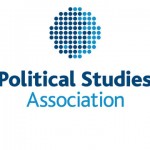For colleagues who may be interested in offering a paper to the Association for Psychosocial Studies Conference to be held here in April 2018, here’s a reminder of the Call for Papers.
Association for Psychosocial Studies Biennial Conference
Bournemouth University, 5th-7th April 2018
‘Psychosocial Reflections on a Half Century of Cultural Revolution’
Fifty years after the hippie counterculture of 1967 (‘the summer of love’) and the political turbulence of 1968 (‘May 68’), this conference will stage a psychosocial examination of the ways in which today’s world is shaped by the forces symbolised by those two moments. It will explore the continuing influence of the deep social, cultural and political changes in the West, which crystallised in the events of these two years. The cultural forces and the political movements of that time aimed to change the world, and did so, though not in the ways that many of their participants expected. Their complex, multivalent legacy of ‘liberation’ is still developing and profoundly shapes the globalising world today, in the contests between what is called neo-liberalism, resurgent fundamentalisms, environmentalism, individualism, nationalisms, and the proliferation of identity politics.
A counter-cultural and identity-based ethos now dominates much of consumer culture, and is reflected in the recent development of some populist and protest politics. A libertarian critique of politics, once at the far margins, now informs popular attitudes towards many aspects of democratic governance; revolutionary critiques have become mainstream clichés. Hedonic themes suffuse everyday life, while self-reflection and emotional literacy have also become prominent values, linked to more positive orientations towards human diversity and the international community.
We invite psychosocial analyses of the development and legacy today of the ‘revolutions’ of the ‘Sixties’. While some will be historical studies, papers need not have an explicit focus on that decade as such, but could approach the conference theme through explorations of contemporary issues in politics, culture and artistic expression. The meanings today, for those born since that decade, of the icons and values characterising its ‘revolutions’, are another guide to its impact. All proposals for papers, panels and workshops must indicate how they address psychosocial dimensions of their topic.
Send your abstract of 250-300 words to: APS2018@bournemouth.ac.uk
Deadline: 30 September 2017. Confirmation of acceptance: 1st November.
Topics could include:
• What happened to hate in the Summer of Love?
• Lennon vs Lenin: did 1967 and 1968 announce two divergent trends in contemporary culture – and what has happened since to the psychosocial forces they expressed?
• What are the meanings of ‘liberation’ today?
• New inequalities in post-industrial societies
• The resurgence of religion
• The Six Day War, intifadas, and intractability
• The planetary environment: fantasies and politics
• Trajectories of feminism
• The changing nature of ageing
• ‘The personal is political’ and other rhetoric in historical context
• Free minds and free markets
• The ethics of freedom: for example, where now for freedom of speech?
• From the Manson Family to the Islamic State
• Pop music’s global conquest and musical hybridity
• Changes in artistic practice, creativity and commodification
• The transformation of media
• The digitisation of everything
• Higher education: democratisation and marketisation
• The potential and limitations of theories of narcissism as a major tool for understanding late modern/post-modern cultures
• New narcissisms in the twenty-first century
• Therapeutic culture and its critics
• Where are they now? Biographical narratives of the revolutionaries
• States of mind in pivotal moments: San Francisco 67, Paris 68, and since
• The sense of entitlement: narcissism or social justice?
• The decline of deference and its consequences
• The hatred of government and authority
• The sexualisation of culture
• Controlled decontrolling or repressive desublimation? Elias and Marcuse on cultural liberalization
• Our bodies ourselves: shifting patterns and perceptions of embodiment.
We welcome contributions from academics and practitioners from different fields and disciplines and very much look forward to seeing you there!
 Political Studies Association: Sport and Politics Conference 2016
Political Studies Association: Sport and Politics Conference 2016










 Conversation article: Why so many people drown at the water’s edge
Conversation article: Why so many people drown at the water’s edge Workshop on longitudinal studies in three countries
Workshop on longitudinal studies in three countries New Bournemouth University public health paper
New Bournemouth University public health paper New ACORN-funded paper published. When time is short but passion for food is strong, food day-tripping may be the answer!
New ACORN-funded paper published. When time is short but passion for food is strong, food day-tripping may be the answer! Royal Society of Chemistry Outreach Fund: Open for Applications
Royal Society of Chemistry Outreach Fund: Open for Applications Last reminder – MSCA Postdoctoral Fellowships 2024 internal deadline next week
Last reminder – MSCA Postdoctoral Fellowships 2024 internal deadline next week Horizon Europe – EuroHPC and MSCA PF webinars
Horizon Europe – EuroHPC and MSCA PF webinars